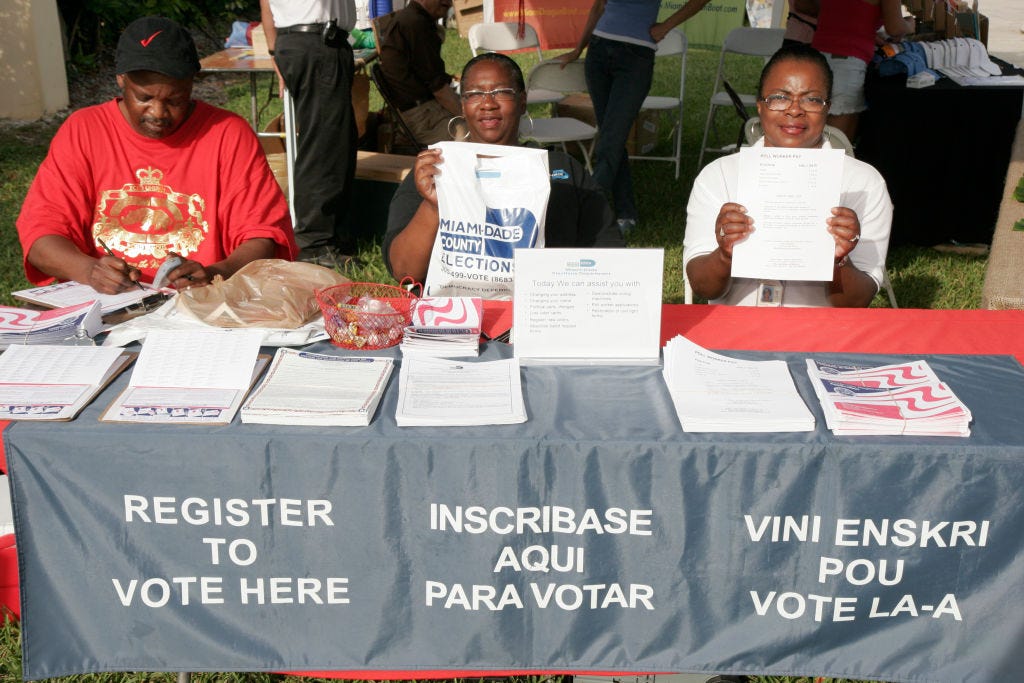Black History Month Edition: Ron DeSantis Doesn’t Want Blacks to Vote and The NFL Doesn't Want Blacks to Coach
Death by Fashion; Miseducation of Black History, and Billie Holiday Sings
Much of my newsletters focus on how politics and popular culture treat marginalized people because how marginalized people are treated affects the well-being of all people. That treatment defines who we all are as Americans—and as human beings.
Most marginalized groups are individually small compared to the entire population. Latinx are 18.7%; Blacks 12.1%; AAPI (Asian American Pacific Islander) 6.2%. Whites are 57.8%. The total of these marginalized groups is 37%. U.S. adults identifying as lesbian, gay, bisexual, transgender, or something other than straight or heterosexual are at 7.1%, though they are part of all groups.
How we are portrayed in the news, movies, TV shows, and songs is as important as the laws that are passed because this contributes to how the rest of population—even other marginalized groups—perceive us. That perception can either make us more welcome or further alienate us. It can reveal to people their biases and change them, or it can justify their biases, which then remain the same.
A U.S. News & World Report and The Harris Poll showed that more than 40% of Americans deny that systemic racism exists in the U.S. While 47% of White Americans didn’t believe systemic racism existed, more than 80% of Black or African American did, as well as more than 70% of Asian or Pacific Islander respondents and nearly 70% of Hispanics.
The only thing about this poll that surprises me is that it wasn’t 100% of Blacks, AAPI, and Hispanics acknowledging systemic racism. Not only do they experience it on a daily basis, but the evidence is daily in the news: “25 simple charts to show friends and family who aren't convinced racism is still a problem in America” (Business Insider); “Studies find evidence of systemic racial discrimination across multiple domains in the United States” (Harvard Center for Population and Development Studies); “Systemic racism: individuals and interactions, institutions and society” (SpringerOpen).
Denying the existence of systemic racism is pretty much like denying the existence of electricity. Yet, one can understand the panic among some White politicians who have seen the future—and that future is a few shades darker than them. By 2044, the U.S. population is expected to be majority non-White. Finally, a true Melting Pot.
Black History Month is important because it’s an opportunity as a community to celebrate our accomplishments and our common cultural experience. But it’s also an opportunity to show the rest of the country a more realistic portrait of who we are, what we go through, and what we want. This is especially important at a time when politicians like Florida governor Ron DeSantis are trying to erase our participation in government through voting restrictions and belittle our contributions to this country by censoring education.
But the Black community has heard it all before and has not been deterred. We live, learn, love—and fight back. Always have. Always will. Today’s special Black History Month edition of “Kareem Reacts to the News” is part of that tradition.
Politics: Ron DeSantis Doesn’t Want Blacks to Vote
Voters’ mail-in ballot requests cancelled as Florida passes new voting restrictions (The Guardian)
SUMMARY: “Hundreds of thousands of Florida voters had their requests for mail-in ballots cancelled last month, a consequence of a new law championed by Ron DeSantis.
“The change is part of a suite of new restrictions on voting by mail – including new identification requirements and ballot drop box limits – Republicans passed after the 2020 election. Previously, Florida voters could elect to automatically receive a mail-in ballot for every election for up to four years. The new measure cancelled nearly all of the standing requests on file at the end of 2022. Voters can also now only request to automatically receive a mail-in ballot for up to two years.”
MY TAKE: Experts believe that Florida’s new regulations, which are complicated and many people don’t know about, will result in a million fewer people voting—mostly the old, the poor, and people of color. This is Jim Crow legislation under the guise of fixing a voting system that not only wasn’t broken, but was praised for its efficiency and integrity.
The only way to reverse this open and relentless attempt to disenfranchise Black voters is to show up at the next election and vote out of office the Republicans who have endorsed this racism. If they succeed in taking away our voice and power, it will only encourage them to pass more laws to marginalize and silence us.




